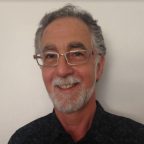
Ramon Bueno
Climate Resilience, Equity & Development Specialist
Ramón Bueno focuses on how different dimensions of resilience and vulnerabilities interact with equity, policy and technology in socioeconomic development. His work since 2007 has explored the relationship and policy implications between economic and energy development, climate change and its impacts in a world highly uneven among countries, regions and communities. Equitable Resilience is increasingly a core interest and working concept of his.
As member of the Climate Economics Group (CEG) —at Tufts University’ Global Development And Environment Institute (GDAE) and later part of the U.S. branch of the Stockholm Environment Institute (SEI)—Ramón worked in critical studies of prominent integrated assessment models (IAMs) shaping the climate policy debate on greenhouse gas emissions reductions and the estimates of their externality cost as the ‘social cost of carbon,’ helping create the Group’s own Climate and Regional Economics of Development (CRED) global 16-region model with a central policy focus on the distribution of the costs of both climate damages and actions under uncertain future conditions. He also helped develop the Consumption-based Emissions Inventory (CBEI) model, implemented for the states of Oregon and California, and King (OR) and San Francisco (CA) Counties within them; and various other studies, such as detailed sea level rise consequences along Canada’s coasts under various climate scenarios. Other later work included a collaboration with the Union of Concerned Scientists on the climate equity challenge in coastal communities in the East and Gulf coasts of the United States. His interests in climate-related work extended to the Caribbean region, starting with the 2008 report with CEG colleagues in “The Caribbean and Climate Change: The Costs of Inaction.” Over the years he has been invited to speak at university and professional forums and classes in Puerto Rico, the Boston area and other states in the U.S.
Ramón was born in Cuba and later lived in Puerto Rico. He studied aerospace engineering and a master’s degree in systems modeling and optimization at the Massachusetts Institute of Technology (MIT). For over two decades he previously worked designing, building and using analysis models and information systems of “flexibly appropriate” complexity for a wide range of multi-disciplinary applications in the private and public sectors. He lives in Somerville, Massachusetts, where for several years he has been a member of the city’s Commission on Energy Use and Climate Change, which advises the city on climate change and clean energy policy issues and assists in designing and implementing programs related to these topics. As member of the MIT alumni/ae Energy, Environment and Sustainability Network (EESN) he helps with its monthly webinars.
Fluently bilingual in English and (native) Spanish, he engages in public dialogue via articles, lectures, presentations and radio interviews or podcasts in both languages. Following the devastation in Puerto Rico from hurricanes Irma and Maria in 2017, he has participated in dialogues fostering connections and collaborations between university and professional colleagues there and from Boston area institutions, such as ResilientSEE-PR, and is a member of the External Board of The RISE Network (therisenetwork.org), an inter-university, multi-disciplinary collaborative effort seeking to improve its institutions’ roles in disaster environments for greater community resilience.